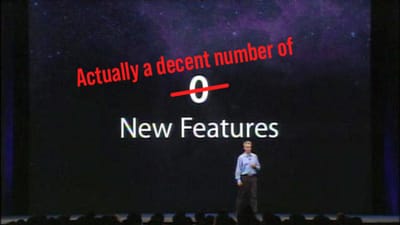Would We Hear More About Speed if the Fastest Mobile Chips Were in Android Phones
But one gets the feeling that if these performance tables were turned, you’d hear a lot more about the relative benchmarks of Android vs. iOS devices from Android-focused websites than we do now. Because it’s not just that Apple’s new $400 iPhone SE offers faster performance than any Android phone money can buy, but that the two-and-a-half-year-old iPhone 8 has better single-threaded performance than any Android phone today — and the iPhone 8 was the phone Apple discontinued for the new $400 iPhone SE. Apple discontinued an iPhone that, if it were an Android phone, would be the fastest in single-threaded performance on the market today.
I think John is totally right. How do I know? Well, look at Mac performance vs Windows performance over the past…forever. Windows PCs tend to have faster chips in them than similarly priced Macs, and often have newer chips that the Mac simply doesn't have yet. This is brought up all the time as a critical feature that PCs have over Macs. If SnapDragon chips were faster than Apple's chips, we'd hear about it all the time.
Of course this goes the other way too. We don't see Apple fans talk too much about how Macs compare to the best Windows options in terms of speed (the major exception is Final Cut Pro X export times, which is absolutely true, but we never do Premier-to-Premier comparisons). We get a lot more "this is faster than the last Mac," and less "here's how Apple's new laptops compare in speed to the new Dells."
It's not a huge deal or anything, and speed is not the only reason any of us choose iOS, Android, Windows, or macOS, but we all certainly like to talk more about the things our chosen platforms do best.


